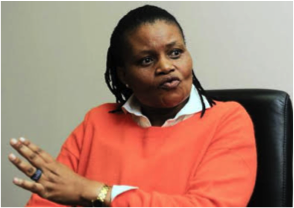In 1998, a diverse group of South African professionals/public servants (myself included) spent a year studying International Human Rights Law at the Raoul Wallenberg institute at the University of Lund, in Sweden. This was a partnership between the Centre for Human Rights and the Raoul Wallenberg Institute. The last part of the course was hosted at the University of Lund. The rationale for this partnership was to train South Africans to embed South Africa’s new Constitution/Bill of Rights, embrace the world and to reflect on the history of apartheid and to ensure that South Africans, “Never Again” hurt each other.
To operationalize human rights as per the Bill of Rights, the country has adopted the following pieces of legislation: Promotion of Equality and Prevention of Unfair Discrimination; the Prevention and Combating of Hate Crimes and Hate Speech. The Equality Court is operational and is always ready to receive submissions related to the violation of the Bill of rights and related regulatory frameworks. Just like in many parts of the world, antisemitism is not tolerated in South Africa, but we could claim it’s not tolerated in many parts of the world where it is currently rearing its ugly head in an intensified fashion. The difference though, is that in South Africa, it is a violation that could be pursued through the courts and if found guilty of antisemitism, the consequences are dire. Some may be tempted to dismiss this, but can only do so at their own peril. South Africa is a country that has displayed religious tolerance for decades, and one hopes this will continue. All religions are respected and accorded equal status.
The October 7 attack against Israel by Hamas and the Israeli response conjured up the idea, the urgency, that international human rights law needs a major review. This includes the role of the UN in mediating conflicts. After the Israel/Hamas war is over, global humanity will continue to exist and peaceful coexistence should not only be wishful thinking, but be embraced by all. As alluded to above, South Africa is a country that has displayed tolerance for all religious views, and is in pursuit of an international human rights environment that will not betray all the forebears of international human rights. It is also a country that continues to display its own fault-lines, is still divided by race although there is peaceful coexistence, where a majority of black folks see and experience the human rights world differently from white folks. It is therefore imperative to view the current response to the Israel/Hamas war through those lenses.
The concern is also about the killing of no-combatans during conflicts. Hamas killed civilians and Israel responded using the same technique as Hamas. This tit for tat approach has raised concerns among millions of South Africans. During apartheid, the military operations of the apartheid army did not bomb areas where the majority of black folks lived. The apartheid state used military intelligence to identify where the liberation movements’ military operations were going to hit. The question is: what should be the role of the UN in the near future to mediate conflicts effectively? It may be helpful for ISGAP to invite the UN to come and present on this matter.
Additionally, the role of social media should be a catalyst and inject urgency to tighten international legal human rights instruments. More attention should be paid to the regulation of social media in its promotion of hate and I would also invite the owners of these companies to explain control measures they currently have in place.
At the center of it all, is the importance of embracing human dignity and the latter is non-derogable. The UN seems unable to mediate conflict based on the Universal Declaration of Human Rights, its basic tenet. The Secretary-General of the UN and all those who came before him, seem powerless when there are global conflicts. This then brings to the fore a critical question on why the UN was established.
Human beings must account for their actions or we will have no world to live in, and bequeath to future generations, if we lessen the grip on human rights law. Antisemitism and all forms of hate, prejudice and discrimination continuously deserve priority.
Elie Wiesel said, and I quote, “I swore never to be silent whenever and wherever human beings endure suffering and humiliation. We must always take sides.”

